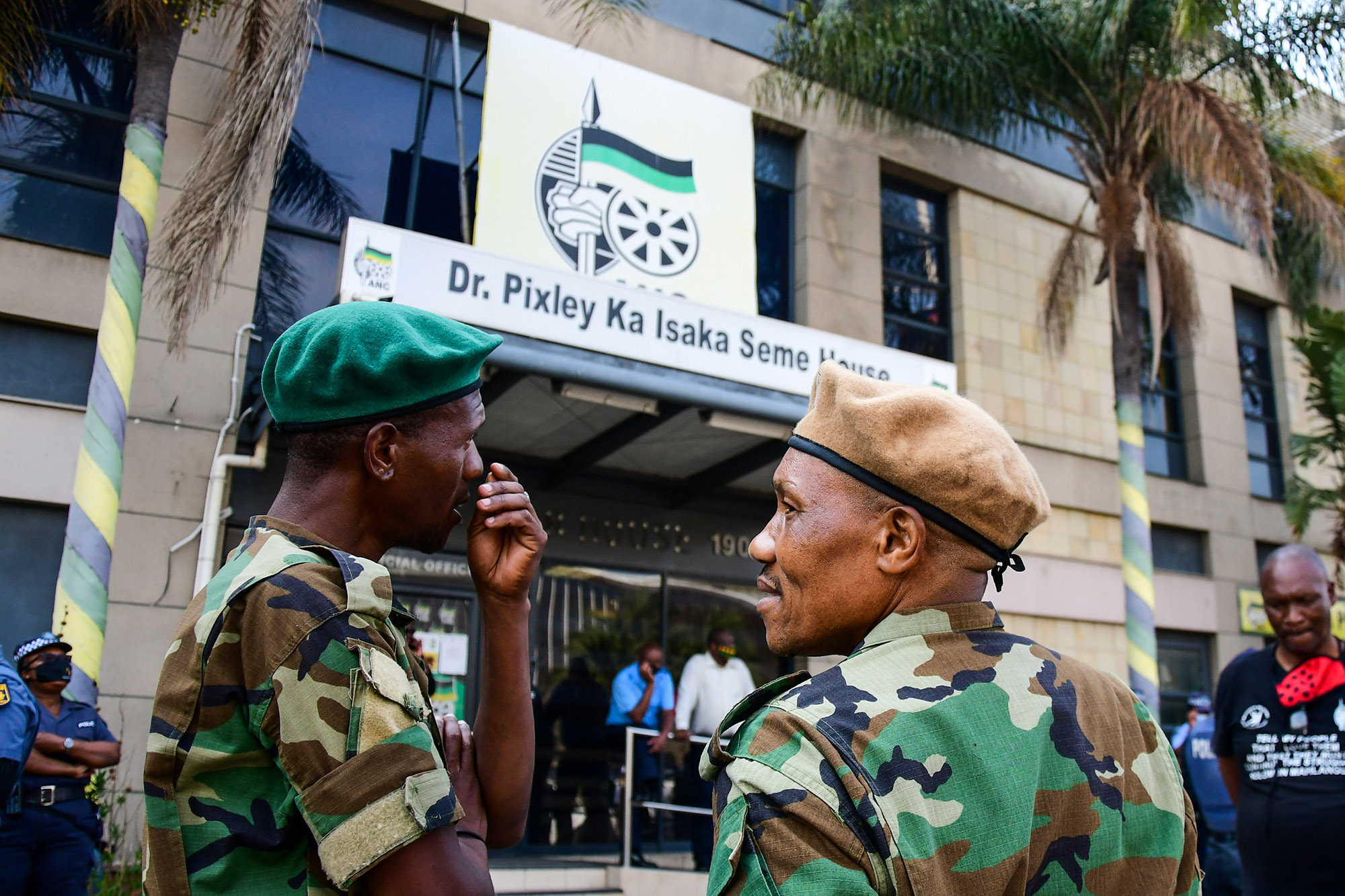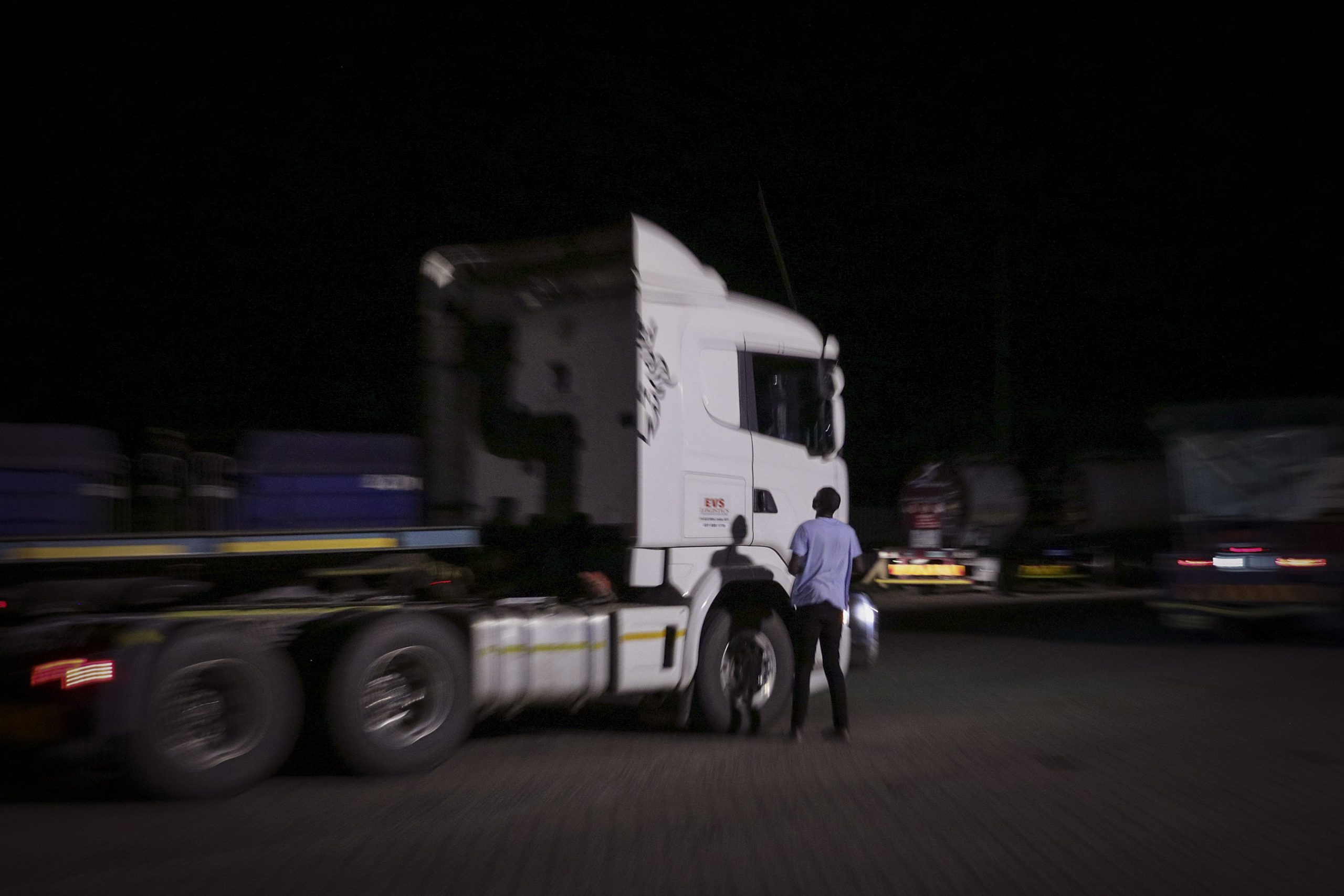Society must construct an anti-xenophobic politics
South Africa needs a popular force to stop increasingly organised threats against migrants, including thuggery by so-called Umkhonto weSizwe veterans.
Author:
2 March 2021

The Umkhonto weSizwe Military Veterans Association (MKMVA) once again made the news when it announced it was in Nkandla to “secure” the home of former president Jacob Zuma. There have also been worrying reports at the Zondo commission investigating state capture that the State Security Agency paid for MKMVA members to travel to Johannesburg to support Zuma during his time in office. People claiming to be Umkhonto weSizwe (MK) veterans – some of them clearly too young to have seen service – have been openly attacking migrants in central Durban since November, adding to the association’s toxicity.
So-called veterans forced a number of migrants from their stalls and replaced them with people they approved of. The rhetoric justifying this has been mostly xenophobic, but there have also been crude ethnic statements.
As is frequently the case around the country, the police often tolerate or even support this violence. Outside the city centre, there have been reports of local ANC councillors trying to incite xenophobia in communities. Senior figures in the ANC at national level, such as Aaron Motsoaledi, are also dangerous xenophobes.
Related article:
But complicity with xenophobia spans a wider range of social forces than just the ANC and the state. Herman Mashaba pushes a Trumpian line, while the Democratic Alliance is also often xenophobic. The KwaZulu-Natal chairperson of the Economic Freedom Fighters (EFF), Vusi Khoza, is one of very few people to have received a criminal sentence for xenophobic violence. This followed an attack on migrants in central Durban in December 2009 in which two men, one from Zimbabwe and one from Tanzania, were murdered.
While the landscape of post-apartheid South Africa has been scarred by periodic episodes of mob violence, it is clear that xenophobic violence is becoming more organised than it has been – especially when this current bout driven by people claiming to be MK veterans is placed in the wider context of the horrific and often murderous attacks on migrant truck drivers.
There is also a move beyond the casual expression of prejudice to organising the ideological legitimation of xenophobia, especially on social media. These developments, which target African and Asian migrants, are a matter of urgent concern.
Xenophobia to sustain power
Around the world, xenophobia is a central tactic used by right-wing politics to scapegoat vulnerable people for social ills and turn the oppressed against one another while allowing elites free rein to exploit and plunder. Racism, anti-Semitism and the sort of religious intolerance we see in countries such as Myanmar and India often have a similar function.
This logic holds in South Africa. Political elites of various kinds actively encourage xenophobia, as well as racial and ethnic chauvinism, to sustain their power and direct the anger that comes from injustice against migrants rather than against systems of oppression.
But, as has been noted, it also has another political function. By bringing uniformed people on to the streets in proto-military formations, both the ANC and the EFF are creating the sort of organised capacity for street violence typically exploited by right-wing demagogues to crush opposition and override the rule of law. We have seen this, at varying scales and levels of efficacy, from European fascism in the 1930s to Donald Trump’s America and Narendra Modi’s India. It had also been a major factor in protecting the deeply corrupt, predatory and authoritarian elite in Zimbabwe, where the notorious “green bombers” terrorised activists and dissidents.

But there is also a global counter-politics. The Left – including communists, socialists, anarchists and the more left-leaning social-democrats – has placed opposition to xenophobia, as well as anti-racism and secularism, at the centre of its politics.
In South Africa, the state has never shown any willingness to seriously confront xenophobia. In fact, the state itself is often deeply xenophobic. And no political party, including the South African Communist Party (SACP), has actively intervened to combat xenophobia on the streets. Some non-profit organisations have issued statements against xenophobia and organised symbolic events such as small pickets or marches. But this is an elite politics that doesn’t have the popular credibility, the popular presence or the scale to make a meaningful intervention.
Religious organisations have sheltered migrants during times of violence, which is entirely commendable. But we have not seen them taking to the streets in numbers, or working in a systematic manner to build a consensus against xenophobia.
The trade union movement has a remarkable and global history of opposition to xenophobia. In South Africa, some unions, such as the National Union of Metalworkers of South Africa, must be commended for including a number of migrants in their leadership structures. But we have not seen the unions undertake combined mass action against xenophobia. If there was enough political will to take this issue up in the unions, the so-called MK veterans would be outnumbered and exposed in a day.
Related article:
Durban is unique in the South African context in so far as it has a vibrant and exceptionally well-organised grassroots politics. It is, of course, anchored in the self-organisation of shack dwellers but includes fisherfolk, street traders and the residents of south Durban who continue to struggle against environmental racism. There are also migrant leaders in this political space as well as strong connections with migrant organisations.
There is an impressive record of direct action in support of migrants during times of trouble, including providing shelter and making well-organised shack settlements safe zones. But this non-violent politics is largely driven by women, and there has not been a direct confrontation with the so-called MK veterans. At the moment, the hope that the Left – from the SACP to the unions and grassroots organisations – could unite against xenophobia and confront the so-called MK veterans in the streets seems forlorn.
A popular force
We cannot claim to be a democratic or decent society while we allow the malignancy of xenophobic attitudes and violence to grow unchallenged. Moreover, democracy will be seriously compromised if we allow xenophobia to develop into an organised project in which proto-militarised structures are allowed to act with impunity on our streets.
Steven Friedman regularly makes the important point that the conversation that plays out in most of our media is between elites. This conversation not only excludes the majority from participation, it is also seldom concerned with the majority’s views, forms of organisation and general political agency. When the experiences of the majority are brought into view, they are often represented as passive victims requiring support, particularly in terms of accessing legal rights.
Protecting and advancing access to rights guaranteed in law is certainly important work. But it is in society – and more specifically within the lifeworld of the majority – that an effective anti-xenophobic politics can be constructed. The existing nodes of anti-xenophobic sentiment and practice need to be affirmed, supported and linked together into a popular force that can act decisively and put an end to the scourge that threatens migrants, the integrity of our own humanity and now also our democracy.


